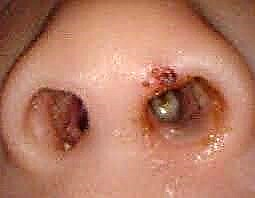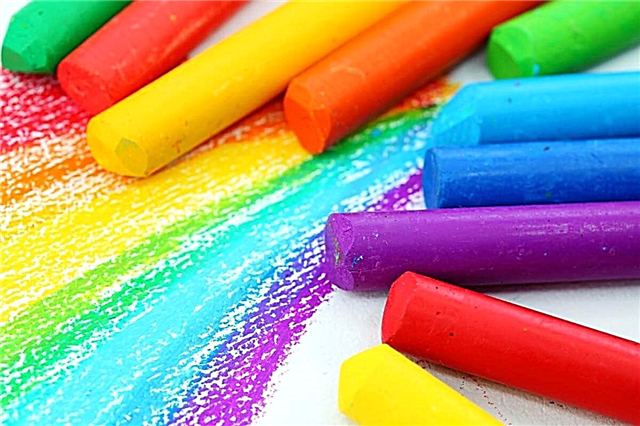
There is no such child who has not contracted cystitis at least once in his life. For some, this very unpleasant disease is a frequent guest. The excruciating pains during urination give babies enormous suffering. But the advice of Dr. Evgeny Komarovsky, a popular pediatrician and author of books on children's health, will help save children from this.


About the disease
Cystitis is an inflammation of the mucous membrane and peri-mucous membrane of the bladder, sometimes spreading to the urinary tract. Most often at the beginning of the inflammatory process, intestinal bacteria are to blame. According to medical statistics, cystitis is 5-6 times more common in girls than in boys. This is due to the physiological features of the structure of the urinary canal: in girls it is shorter, so the bacteria have time to travel to the bladder much more efficiently and with less losses.


Cystitis in children is acute and chronic.
It becomes chronic if in the acute stage the child has not been given the correct treatment. It is difficult to miss and not notice cystitis - the child will definitely report his unpleasant sensations.
Difficulties with diagnosis are only in infants. They suffer from cystitis no less than older children, but they cannot say anything, and the constant crying of mothers will be attributed to anything: to teeth that are being cut, to infant colic, to hunger, cold or heat, to the baby's bad mood and to his capricious character ... Meanwhile, the true reason for this behavior will remain unknown, and acute cystitis will quickly develop into chronic.
Symptoms
The manifestations of cystitis are quite characteristic and specific. They are the same for children of any age:
- severe cutting pain when urinating, especially after the end of the process;
- the frequency of urination increases, and the amount of urine decreases;
- the color of urine is cloudy, sometimes you can see blood impurities in it;
- sometimes there is an increase in body temperature;
- urinary incontinence;
- the appearance of cutting pain in the lower abdomen in the center.
Mothers of nursing babies should be especially careful: the only symptom by which they may suspect cystitis in babies is increased crying immediately after urination.


Causes
The most common cause of childhood cystitis is hypothermia. Moreover, if a child walks around the house or even on the street barefoot, he has practically no chance of getting cystitis, says Yevgeny Komarovsky. But everything changes when the baby tries to sit booty on the floor, on the ground, on a cold stone. The vessels of this part of the body do not constrict, as it happens at the feet, the loss of heat becomes rapid.
Another reason for the onset of the disease is a violation of hygiene rules, as a result of which it becomes possible for intestinal bacteria to enter the urinary tract. The development of diseases is promoted by weakened immunity, kidney disease and drug allergies, in which cystitis occurs as a reaction to taking certain medications.

Treatment
It is imperative to treat cystitis, says Yevgeny Komarovsky. Trying to wait for everything to pass is bad tactics. It is even worse to start treating bladder inflammation with folk remedies. Self-medication in this case is inappropriate.
At the first signs of cystitis, Komarovsky advises to see a doctor, who will ask you to pass urine for analysis.
Bacterial culture will allow you to understand which microbe or fungus caused the damage to the bladder. After that, the doctor will prescribe the necessary antibiotics that are effective against this particular pathogen.


Diuretics are likely to be prescribed, because the more often a child defecates, the more pathogens will leave his body along with urine. In connection with the appointment of diuretics, it is reasonable to give the child a warm drink as much as possible: compotes, fruit drinks, parsley broth, tea are well suited. The liquid should not be cold and hot: only when its temperature approaches body temperature, the liquid begins to be absorbed and absorbed much faster.
At the time of treatment, you should refuse spicy, salty, pickled foods, spices, sour berries and fruits, carbonated drinks.
At home, mothers can carry out local procedures for the child - put him in a warm bath to relieve pain. In this case, the water temperature should not exceed 36-37 degrees. If you overheat the inflamed bladder, the pathological process will only worsen.
In case of acute cystitis, proceeding with an increase in temperature, it is advisable for the child to ensure bed rest.


Prevention
Do not sit on the cold, do not overcool (this has nothing to do with walking barefoot).
Teach a child to wash properly, and to teach kids how to wash correctly. This is especially important for little girls - they must be washed under running water from the genitals to the anus, and not vice versa. Boys should not be washed with soap, opening the foreskin spontaneously - a chemical burn can cause not only cystitis, but also much more serious diseases.
It is necessary to increase children's immunity. This should be done not by different tablets and syrups produced by pharmacists, but by tempering, proper nutrition, rich in vitamins, and regular walks.

You will learn more about the treatment of cystitis in children in the following video.



